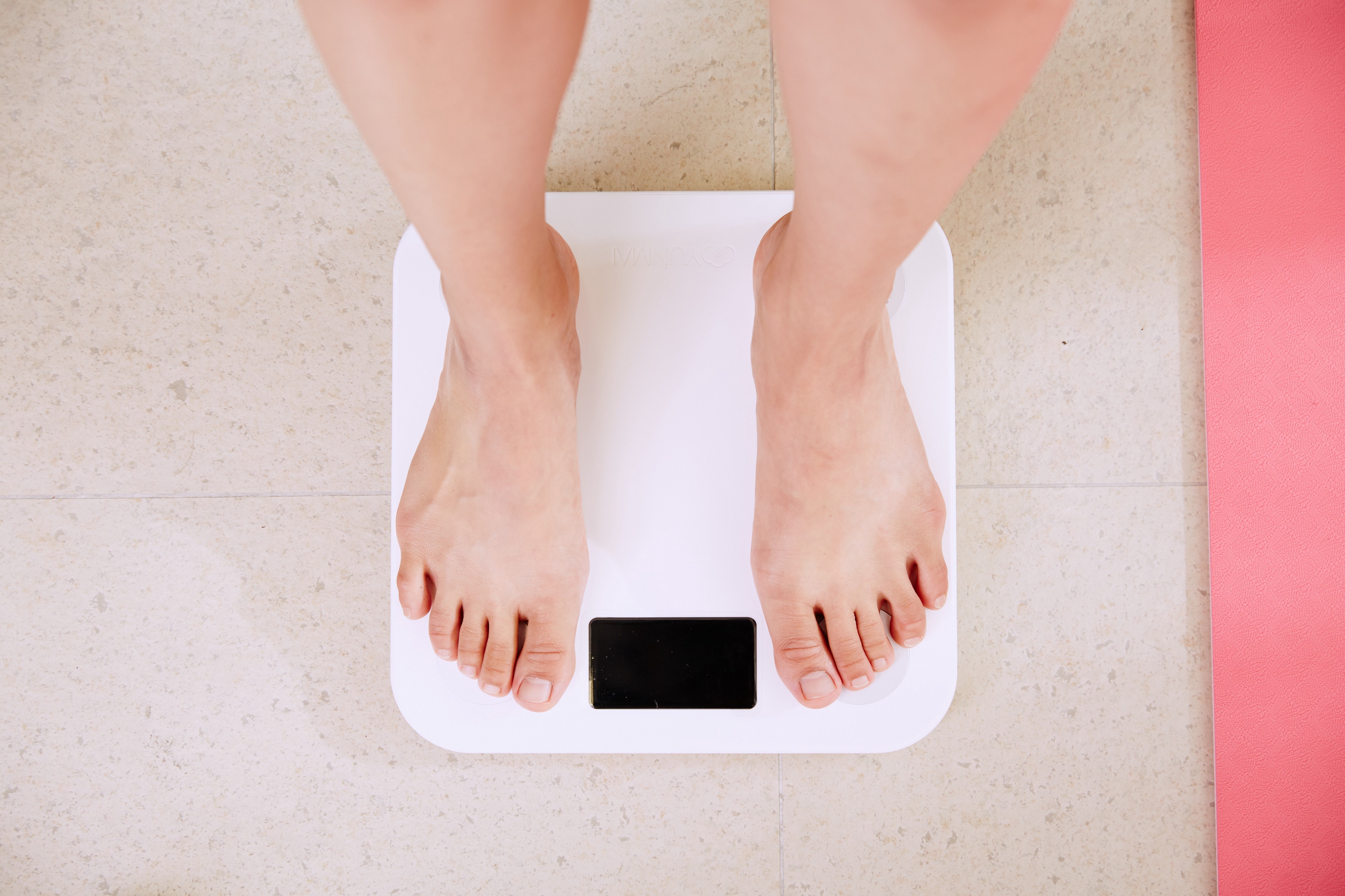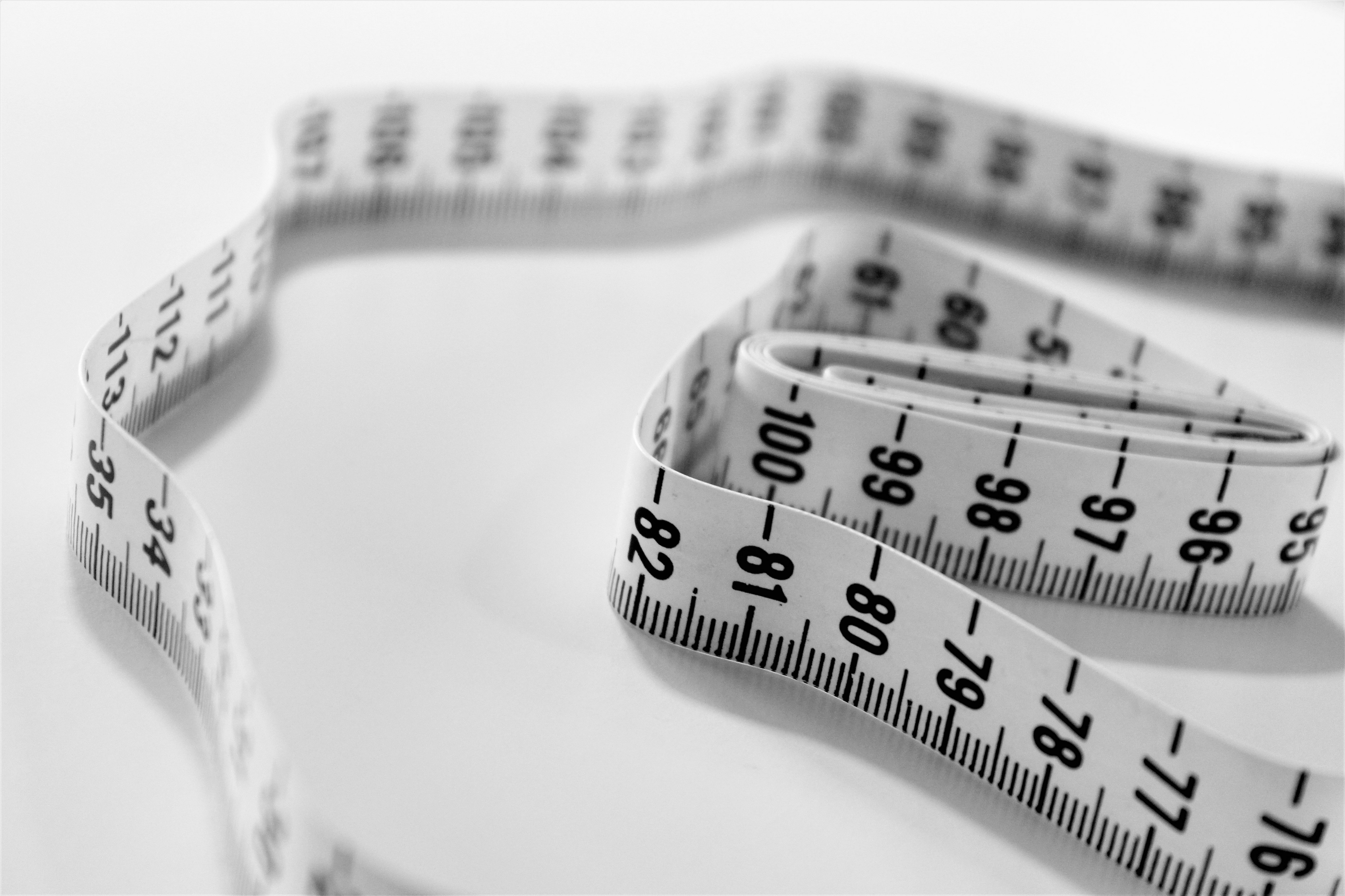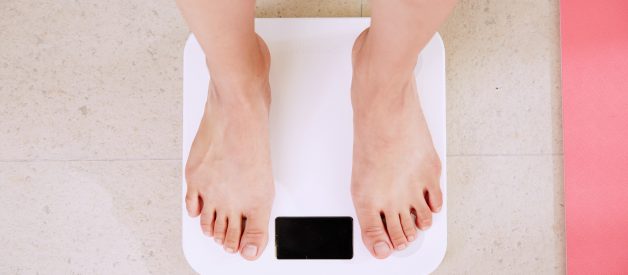The diet seemed like a crazy whim. Then it worked.
 i yunmai/Unsplash
i yunmai/Unsplash
LeBron James is a fan. So is Halle Berry, Vanessa Hudgens and at least one Kardashian. But is the ketogenic diet, where you get 70% of your calories from fat, 20% from protein and 5% from carbohydrates, healthy? Is it even doable? Or smart?
Shape magazine named keto as the most popular diet of 2018, with everyone from celebrities to personal trainers extolling its virtues.
But I wasn?t interested in being one of the cool kids. I just wanted to lose 15 (okay 20) pounds and figure out why I was tired all the time.
The fatigue wasn?t a new thing. But it was happening more frequently, especially after I ate. One morning, I was on my second cup of coffee, struggling to focus on the computer screen when I was forced to lay down. I simply couldn?t fight the urge to take a nap. An hour later, I woke up feeling rested ? and worried.
 Zohre Nemati/Unsplash
Zohre Nemati/Unsplash
What happened?
The fatigue hit me five minutes after finishing breakfast. Was it my blood sugar? Maybe I was hypoglycemic. Or diabetic. Or allergic to something.
I?d eaten a healthy breakfast: two slices of high fiber, organic toast topped with almond butter and sliced bananas. Surely that should have energized me.
But it turns out that while that ?healthy? breakfast did have 13 grams of fiber and 13 grams of protein, it also had 23 grams of sugar. That?s more sugar than in a Krispy Kreme jelly doughnut!
It gets worse. I had eaten 71 grams of carbohydrates ? more than twice as much as the 28 grams of carbs found in a Snickers bar. And since carbs turn into glucose (sugar) in the bloodstream, it?s no wonder I felt like I?d eaten two candy bars for breakfast!
Carbs Impact Health
I had never really thought about the impact of carbs on my health before. Oh sure, I knew people who had used low carb diets like Atkins or South Beach to lose weight. But I really had no idea how carbs affect metabolic health or the cardiovascular system.
I always thought complex carbohydrates (whole grain bread, brown rice, whole wheat pasta), were high in nutrients and fiber and therefore, healthy. But are they? Do they reduce biomarkers for disease or its cause, inflammation?
Indeed, there are a number of studies concluding that fiber promotes weight loss, reduces the risk of cardiovascular disease and Type 2 diabetes, eliminates constipation and improves gut health.
Those were some of the reasons I decided to experiment with eating 25 grams of fiber every day for a month. In fact, I had continued that high fiber diet even after my experiment.
But that was before my sugar collapse. And it wasn?t the first time I?d had an energy dip after eating.
Then there was my weight. I?d been struggling to lose that extra 10 (really 20) pounds for at least two decades.
I thought the high fiber diet was helping, since it eliminated bloating and constipation. However, a trip to the doctor revealed the truth: I?d gained 2 pounds since last year. In fact, I?d gained between 1 and 3 pounds every year for the past five years.
When Doing Everything Right Is Wrong
She attributed it to aging, but that didn?t make sense to me. Plenty of people who are older than I am are lean, and many of them don?t eat kale salads and quinoa every day.
I was not only eating plenty of high fiber carbs, I was avoiding processed food, cramming in as many vegetables as I could and exercising like a fiend.
I?d gone from working out three days a week to six. I incorporated high intensity interval training into my workouts and extended my cardio sessions. Yet my weight had actually gone up.
Why?
I stumbled onto an article by Dr. Jason Fung: Obesity Is a Hormonal Imbalance, Not a Chemical Balance, and I began to think about how frequently I was eating: a handful of pretzels when I passed the kitchen, a nibble of hummus and chips while making dinner, a bowl of popcorn after dinner. Yup, I was a snacker.
I guessed that my insulin was not functioning properly. I decided to try intermittent fasting ? eating during an 8-hour window and fasting for 16 hours. It was ok, but I still had cravings for carbs. Then I discovered the ketogenic diet.
I decided to try it for a month. Here?s what happened.
1. I lost weight.
The weight just dropped off. And I not only lost pounds ? 10 to be exact ? I also lost 1 inch from my hips (my problem area) and went down a dress size! Even better: it was effortless.
2. I peed a lot.
Like a whole lot. Like if there was a contest for most pee excreted in a given day, I could easily take top honors.
I know what you?re thinking: it?s just about losing water weight. That?s not real weight loss. It?s a scam. It?s this year?s grapefruit diet. Believe me, if I had no experience with keto, I would be thinking the same things.
But indulge me for a moment in the wee bit of science I?ve been able to pick up since starting my keto journey. It turns out that when your body shifts from burning glycogen (carbohydrate stores) to burning fat, you excrete a whole bunch of water and sodium. Apparently, for every gram of glycogen your body stores, it also stores 3 grams of water. Those 3 grams of water are actually bound to every gram of glycogen.
So when you begin depleting your glycogen stores, you also lose a lot of water. This accounts for the fast weight loss many people enjoy on keto. So yes, it is water weight.
However, that doesn?t mean you?ll gain it back or that after a few weeks or that you?ll stop losing weight on keto.
I Tried Intermittent Fasting for a Year: Here?s What I Discovered
Time restricted eating is one of the hottest diets around. I experimented to see if it works.
medium.com
3. I got dizzy and lightheaded.
This was my experience of the so-called ?keto flu.? It?s not a stuffy nose kind of flu, but rather a lethargy that kind of descends on you.
I noticed symptoms of fatigue about three days in. About two weeks in, I found myself getting dizzy while trying to exercise, and about three weeks in, I found it difficult to complete a workout.
Ten hours and about 30 articles, podcasts and You Tube videos later, I came to the conclusion that my electrolytes were low. The fix: get more sodium.
Stephen Phinney, MD, Ph.D, who has spent 40 years studying nutritional biochemistry, suggests getting 5 grams of sodium per day on a ketogenic diet. That?s a lot ? the equivalent of 2.5 teaspoons of salt. (Remember, salt includes both sodium and chloride, not just sodium). And you have to get that every day because the body can?t store sodium.
I?m not going to lie. That?s been tough for me. I don?t eat a lot of processed food, and I can?t seem to just drink salted water or put a tsp. of salt on my tongue and chase it with water as many do.
My solution is to eat 4?5 olives per day (about 1 gram of sodium), drink bone broth, salt my food heavily and take salt tablets. It?s not ideal, but I?m getting there.
Most importantly, I no longer feel dizzy while exercising and I can easily get through the day without feeling tired.
4. I was really tired during exercise.
If you read anything about keto, you?ll see stories of people having boundless energy. They can run 6, 12, 15 miles or more without feeling tired!
That hasn?t happened to me. Those people are likely fat adapted ? a term doctors use to describe people who are successfully burning fat instead of sugar (glycogen) for energy. It?s the goal of everyone who goes on keto, but it doesn?t happen right away. In fact, some experts say it may take up to six months to become fully fat adapted.
In my case, after the initial keto flu ended, I?ve had plenty of energy to get through the day (thanks to an increase in sodium intake). But I am still unable to complete a full workout without feeling exhausted. I am trying to be patient with myself on this by reducing my workouts and giving my body time to adjust.
It isn?t a great side effect of the diet, but it?s manageable and, I hope, temporary.
5. My hormones went nuts.
After not having my period for nearly a year, I was surprised that within a few days of starting keto, I got a period. Three weeks later, I got another period.
According to my doctor, keto can be used to regulate hormones. Some women find it stops hot flashes. Others report that keto successfully resolves Polycystic Ovarian Syndrome (PCOS). (There?s a small study that discuss this.) Some men report that it resolves erectile dysfunction.
For me, the hormone changes were definitely beneficial, and they weren?t limited to sex hormones. I slept better and felt calmer overall (improved cortisol function?). I also enjoyed what I can only describe as a discovery of leptin, the hormone that controls satiety.
For the first time in my life, I could eat and feel truly satiated. No more feeling so full my stomach could burst, but still having room for that piece of chocolate cake.
The fullness I experience on keto is a whole new sensation. I feel satisfied, and I don?t want to eat anything else.
6. It?s the one diet that was easy to stick to.
 Siora Photography/Unsplash
Siora Photography/Unsplash
When I say diets don?t work for me, I don?t mean I?ve lost weight on diets before, then gained it back, or that I?ve tried diets that worked short term, but didn?t have lasting results. I mean I have never ever been able to stay on a diet.
Like ever.
Once, about 15 years ago, my neighbor successfully lost 25 pounds of post-baby weight on the Atkins diet, and I decided to give it a try. I couldn?t make it to lunch.
A few days later when my neighbor asked how the diet was going, I sheepishly said, ?I think I?ll just wait for the all carb diet to become fashionable.?
The truth is I?ve eaten mostly carbs all of my life. Between the whole wheat pasta, sandwiches on whole grain bread, salads (fruits and vegetables are carbs, too) and the inevitable brownie or cake after dinner, I estimate that I was getting more than 200 grams of carbs per day. I never really cared for steak, and I?d flirted with going vegetarian a number of times, so carbs were truly the mainstay of my diet.
Going keto changed all of that for me. Now, I not only don?t mind eating more fat (lots of avocado) and protein (lots of bacon), I feel better when I do.
7. I felt calm and clear-headed.
Anyone who?s ever been hangry knows the danger of that mid-afternoon dip when you need food ? fast! That used to happened to me all the time, but not since starting keto. I just don?t get that insane I-want-to-rip-off-someone?s-head-if-I-can?t get-some-pretzels-now feeling anymore.
Even during my busiest, most stressful weeks, I don?t find myself snapping at my kids or craving a glass of wine or some cookies at the end of the day.
My memory is also better. I no longer go into a room and find myself forgetting why I?m there. And I can keep lists in my head, like I used to when I was in my 20s. I also get a wonderful sense of clear-headed focus while working.
8. I had zero cravings.
I love food, and I enjoy eating, but I don?t crave food ? especially carbs ? any more. I thought I would miss pizza and muffins and cookies, but I?ve been delighted to find keto recipes for all of those things, and they taste good. Even better: I don?t get that carb hangover after eating them.
Being on keto is just easy. I?d even go so far as to say I enjoy eating more now, because I get to eat until I feel satisfied. Then I simply stop.
Keto Faves and Fails: Which Low Carb Products Are Worth Your Money
New keto and low carb products get a taste taste
medium.com
9. I don?t get aches and pains anymore.
A little back pain here, a little neck pain there, those were the sensations I?d grown to live with. I was able to control them with targeted exercises, but now I just don?t have them.
I?m guessing it?s a reduction in inflammation. After all, when I started having back pain, the first prescription I got was an anti-inflammatory. But why take pills when you can reduce the inflammation from the inside?
10. Going out to eat was challenging
A lot of people describe keto as an extreme or highly restrictive diet. I don?t think it?s either of those things. Today, I?ve eaten four slices of bacon, a piece of asparagus quiche, some olives, pulled pork, a Caesar salad and a chocolate tart made with avocado and coconut milk.
Now, I made all of those things myself. When I go out to eat, I have to avoid sugary sauces and salad dressings as well as starches, sweets and breads. Fried food would be fine if it didn?t have breading, but it nearly always does. And the majority of restaurants cook with unhealthy vegetable oils.
Interestingly, the restaurant world is happy to serve ketchup made with high fructose corn syrup, but when I replace French fries with asparagus as a side dish, they?re loathe to put a pat of butter on it. Apparently, the world still fears fat.
However, I am hopeful that things are changing. As more chefs learn that butter, coconut oil, olive oil, lard and beef tallow are healthy fats, perhaps we will see healthier restaurant options.
As for me, I have never looked forward to swimsuit season more. Perhaps I will have lost the remaining 10 pounds by then.
But even if not, I?m sticking with keto. I love the calmness, hormonal regularity, satiety, mental clarity, decreased inflammation and increased focus I get when I?m on keto. It?s true that I came to keto for the weight loss, but I?m staying for the health benefits.
Like this story and want more? Sign up for my newsletter now!


